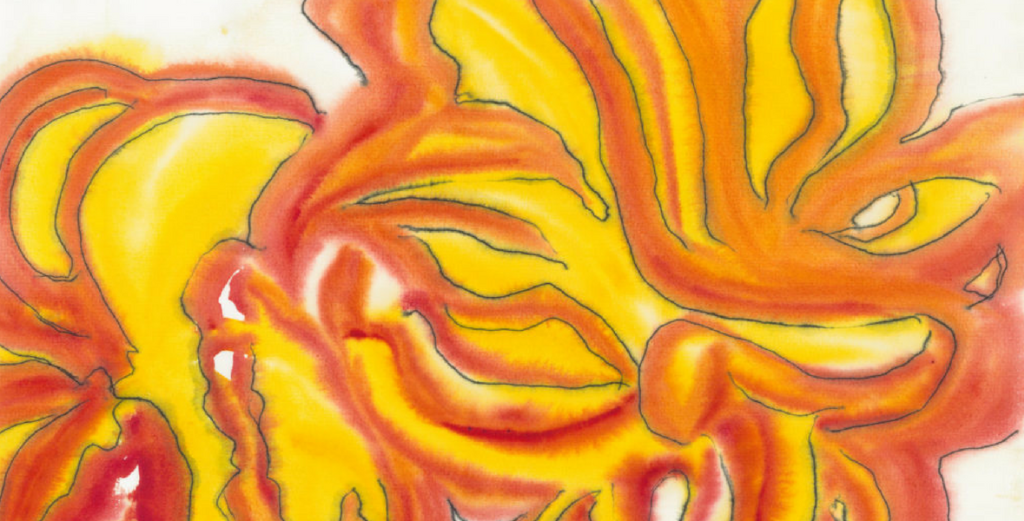
This month: Lesson #3 Let go, let go, let go
Artwork above from: Art of Alzheimer's
My interaction with dementia is a study in letting go. In mid to later stages, dementia is variable day to day so expected outcomes may not occur and important things like: getting to appointments, taking a walk, going on an outing, or, perhaps, even attending to hygiene or eating may not happen when I, or others, think they need to happen. Caregivers need to let it go and try again later. People experiencing the condition have already let it go and are in a protracted state of loss. They are letting go of everything they built throughout their lives: their finances, their accomplishments, their material assets and perhaps their awareness of having family. Finally they will let go of life entirely prompting their loved ones to begin their journey of letting go.
Letting go isn't the same as going with the flow (my lesson #1) though there are similarities. Both involve some degree of releasing control. Going with the flow is a process of flowing around obstacles or going along with what's presented. Letting go has deeper implications. Letting go can be a form of non attachment, a power allowing you to move forward, a freedom from the weight of anything heavy on your mind. Letting go requires that you first realize you're holding on.
Are you holding on? I certainly noticed that I was when I began my work as a caregiver. Strengthening the ability to let go, I found, can teach openness and greater ease with life's uncertainties. We too are in a protracted state of leaving what we know on earth and as we age we're becoming more aware of that reality. Growing more comfortable with letting go can show us how to allow ourselves the vulnerability to be fully alive while we're here. It can point us to the balance between embracing feelings of life and truly accepting life's ephemeral nature. My experience with dementia keeps me in touch with the ephemeral and I'm thankful for the lessons on letting go that help me find balance. In the video below, Dr Alison Tan comes by her lessons on letting go in a different way.
Dr Alison Tan had a powerful career. She was balancing the stress of work while trying to meet her ideals as a mother and daughter. Then, a profound experience caused her to begin realizing that she was trying to hold on and control life. Letting go of some control, she tells us, opened up a fulfilling world she hadn't seen before.
Most of us can agree that some forms of stress are induced by trying to control life or not letting go of events that disturb us. Stress can impact us in the present by changing our behavior, causing insomnia, or impacting our health and immune defense and a long term pattern of stressing events we can't let go of can cause major harm to our health. Some studies suggest that stress ages us. In addition, the effects of stress, such as suppressed immunity, can be harder to fight as age creates greater vulnerability. Sometimes we become caregivers in our later years. Caregiving can be rewarding yet caregiver stress and burnout is common. Caregivers often need to let go of the belief that they're the only ones able to provide care and consider ways to vacation, take personal time, or access respite care. Women report more stress than men nevertheless both sexes face risk from long term stress. Wonder how stress may be affecting you? Take the survey at the American Institute of Stress.
I'll be the first to say that I still struggle with letting go and still bump into days when I feel stress. Yet interacting with dementia has helped me clearly see places where I hold on and, increasingly, shows me the value of letting go----the absolute inevitability of having to let go. It may be counter intuitive to think letting go can open a new world that is better than the one we have yet I agree with Dr Tan and, like her, invite all of you to give it a try.

